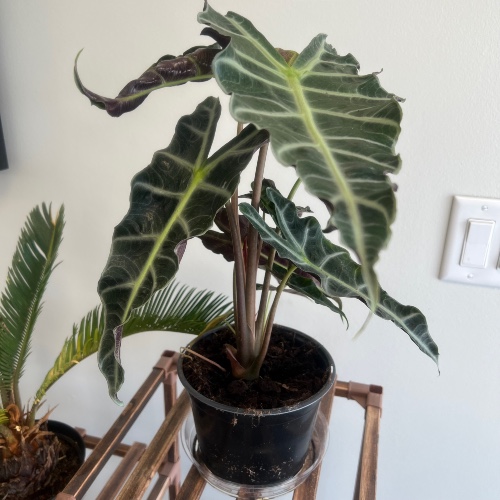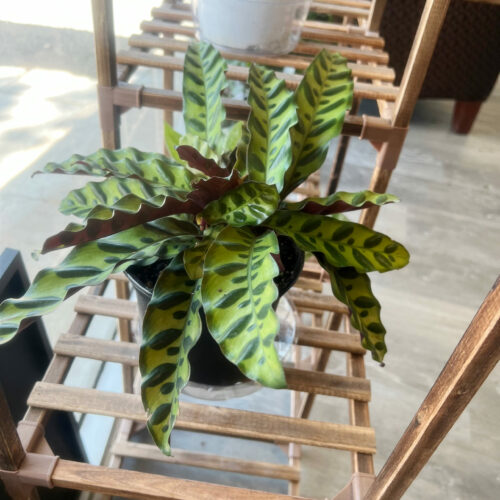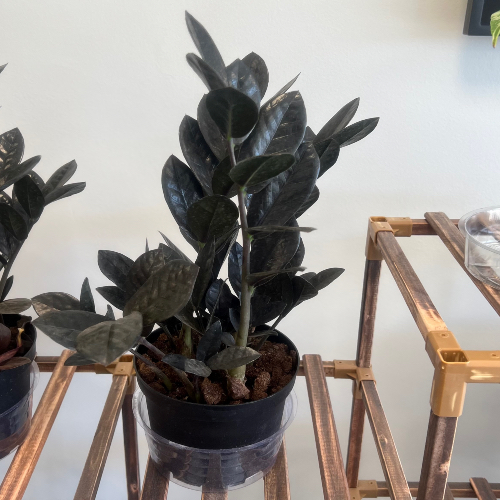Description
Alocasia polly, also known as Alocasia x amazonica or the African Mask plant, is a really cool houseplant that has unique leaves. It’s part of the Araceae family and originally comes from the tropical rainforests in Southeast Asia.
The leaves of Alocasia polly are big and shaped like arrows, with cool veins that look like the patterns on exotic bird wings. The leaves are shiny and a deep green color, and the white veins really stand out. The leaves usually stand upright, which gives the plant a majestic look.
Taking care of Alocasia polly means giving it the right conditions to grow well. It likes bright light, but not direct sunlight because that can burn the leaves. It also likes warmth and humidity, so it’s great for places that have a tropical or subtropical climate. You can mist the plant with water or put a tray of pebbles filled with water under it to keep the humidity up.
When watering Alocasia polly, be careful not to overdo it because it can get root rot. The soil should be moist but not soaking wet, and it’s important to use soil that drains well so the water doesn’t sit and cause problems.
During the growing season, you can fertilize Alocasia polly to help it grow better. Use a balanced houseplant fertilizer, but dilute it to half the recommended strength. Follow the instructions on the fertilizer package and don’t overdo it because too much fertilizer can harm the plant.
Indoors, Alocasia polly can grow to be about 2-3 feet (60-90 cm) tall. It’s a pretty fast grower if the conditions are right, but it might slow down and go into a dormant period during the winter.
Watch out for common pests like aphids, spider mites, and mealybugs. Check the leaves and stems regularly and take care of any pest problems right away to keep your plant healthy.
Overall, Alocasia polly is an amazing and elegant houseplant that brings a tropical vibe to any indoor space. Its unique leaves and relatively easy care requirements make it a popular choice for plant lovers and collectors.
NOTE:Because it’s mildly toxic, alocasia Polly should be kept out of reach of children and pets.




